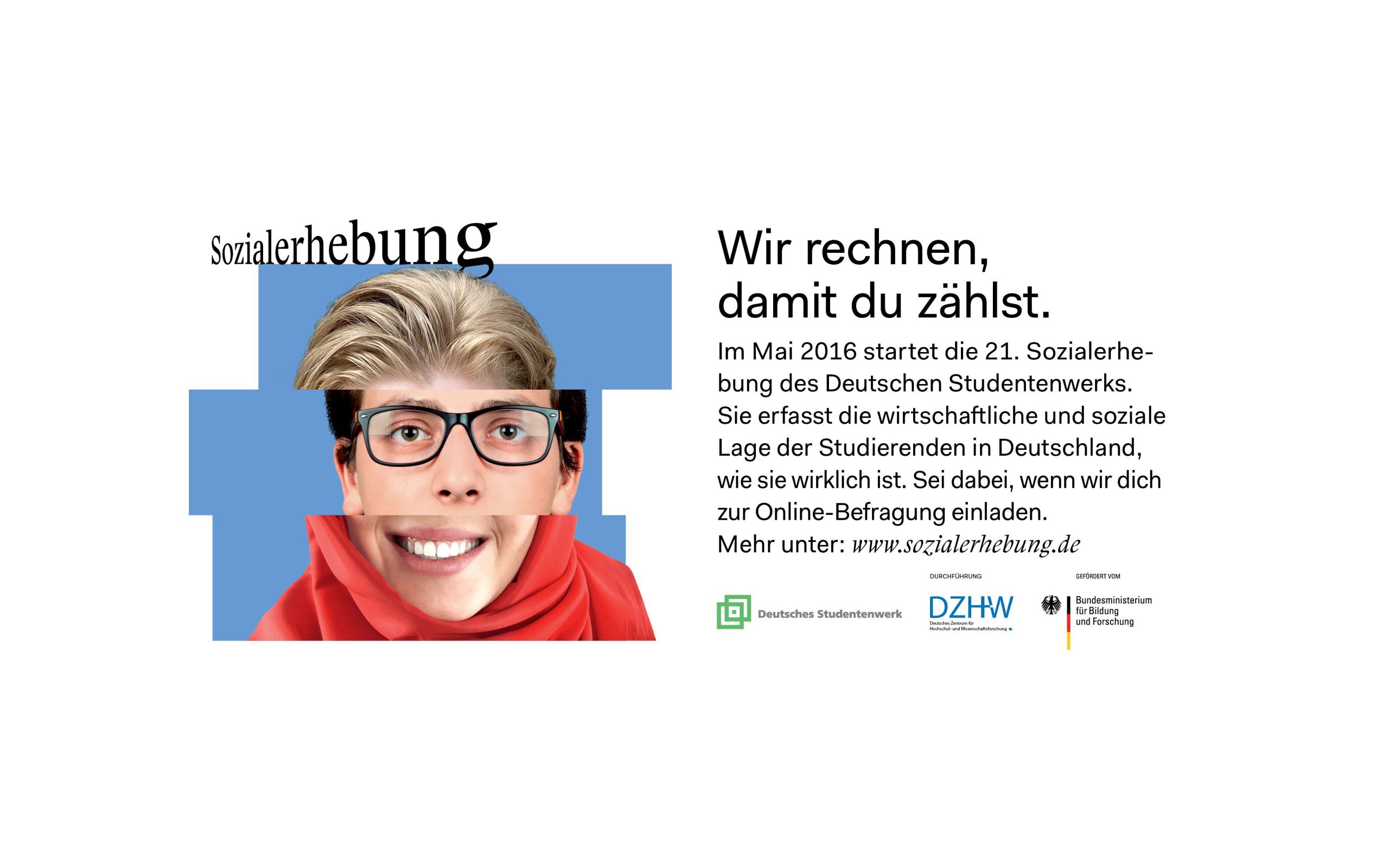
The results of the social survey conducted in 2016 are available and allow a better understanding of the lives of students in Germany.
The results of the 2016 representative online survey of Deutsches Studentenwerk (DSW) on the economic and social situation of students are available, in which 60,000 students participated:
Finances, jobbing, BAföG, and housing
Students in Germany have an average of 918 Euro at their disposal for living every month, compared to 842 Euro in the last survey four years ago. A bit more money, however, with the number of students working on the side increased by six percent to 68 percent. Parents additionally support their studying children with 309 Euro monthly on average (compared to 261 Euro in 2016).
Professor Dieter Timmermann, president of Deutsches Studentenwerk, sees a correlation to increasing rents and insufficient BAföG, compensated by the students by working more and receiving more financial support from their parents.
In addition, only 18 percent of the German students received BAföG at all in summer 2016; that is the lowest rate since the beginning of the nineties. As the allowances were raised as of winter semester 2016/17, they hoped that henceforth a considerably higher number of students was entitled to receive BAföG. Timmermann demands further modifications of the BAföG: "However, when you consider the gap between the average income of students of monthly 918 Euro and the present maximum BAföG rate of 735 Euro, this alone makes clear that there is still urgent need for action with regard to BAföG", said the DSW president.
Rent is the greatest expenditure item for students, amounting to an average of 323 Euro per month. Therefore, the Deutsches Studentenwerk substantiates its demand for a joint social project for students by the German federal government and the German states, mainly to build and reconstruct student residence halls, which is the cheapest way of housing for students. In 2016, 12 percent of the students lived at student halls of residence.
Age, family, health, and origin
At the time of the survey, the age of students in Germany was 2.7 years on average. 46 percent of the students were singles, about 50 percent unmarried but in a long-standing relationship, 6 percent were married or lived in civil union. Also 6 percent of the students had at least one child. 66 percent came from a family, where mother and/or father had completed the Abitur secondary school leaving certificate; at least one parent of 24 percent of the students had achieved the general certificate of secondary education (Realschule); in less than 9 percent, the maximum was the certificate of primary education (Volksschule) or certificate of secondary education (Hauptschule). In the summer semester 2016, altogether 20 percent had immigrant backgrounds. 11 percent of the students had one or more health impairment.
Subjects and courses of study
Distribution of subjects:
92 percent of the students were enrolled as full-time students in the 2016 summer semester; 62 percent in a bachelor program, every fifth student in a master program. Only 2 percent were still enrolled in Magister, Diplom, or ecclesiastical programs. 16 percent had spent study-related time abroad. 22 percent of the students already had completed a vocational training before the initial enrolment.
The survey
The 21st social survey was conducted by Deutsches Zentrum für Hochschul- und Wissenschaftsforschung (DZHW) on behalf of Deutsches Studentenwerk and funded by the German Federal Ministry of Education and Research (BMBF). The social survey is a long-term analysis examining the social and economic situation of students in Germany on a regular basis since 1951. In the 2016 summer semester, the number of students participating in the first-time online survey was as high as never before. Information provided by more than 60,000 students of 248 universities and colleges were analyzed in the present social survey – about 16,000 students had participated in the last survey in 2012.

